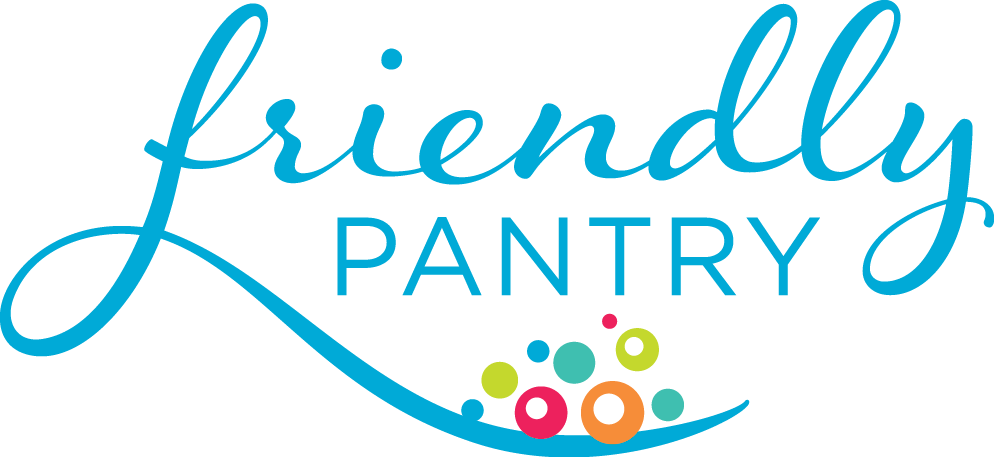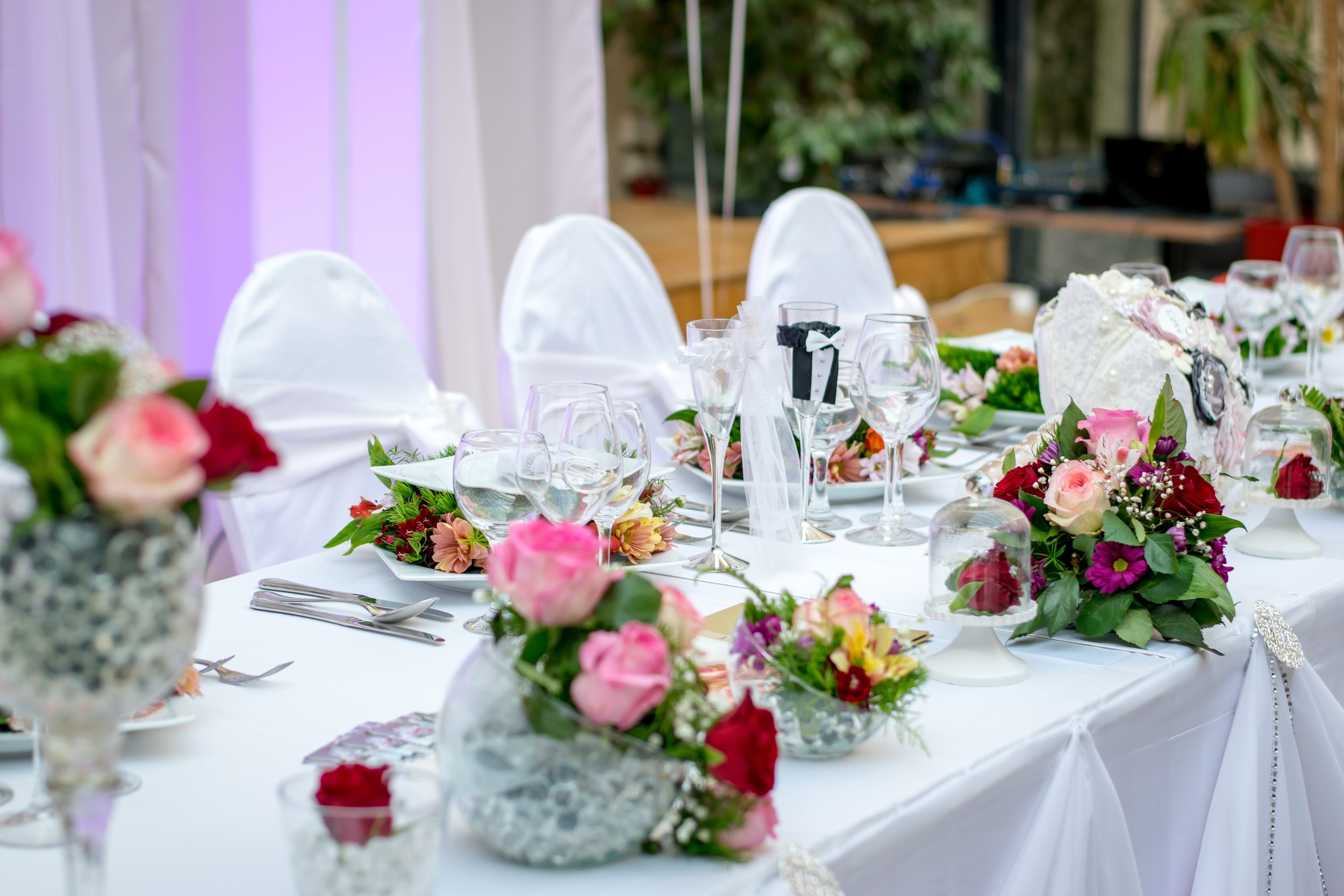Everything You Ever Wanted to Know About Attending a Wedding With Kids With Food Allergies
So your little one has food allergies, and you’ve visited the FARE and/or Food Allergy Canada websites. You’ve downloaded my list of top things to do after your child is diagnosed and although you’re still a bit overwhelmed, you feel like you’ve got things under control for now.
Except, now you and your family have been invited to a wedding and you’re not sure how to handle it. First of all, you’re not alone, this can be a tricky subject! It can feel awkward to ask for accommodations, and maybe you’re not sure exactly what you should ask for. It’s also stressful because it’s hard to know if the right information is being shared with the caterer and if the caterer understands how to safely manage cross-contact in a busy kitchen. Not only that but there’s the feeling of being rude at someone else’s celebration.
Not to worry friends, let’s figure it out!
So the first thing to do is mention the allergy on the RSVP. Hopefully, they asked for dietary restrictions on the invite, and if so, you know it’s important to them, which is a great first step!
If they didn’t ask, then you’ll have to decide if you want to contact them directly to talk about it, OR just circumvent the whole situation by feeding your child (and possibly yourself) before the reception OR bringing safe food for your child TO the reception. This can be a tough decision! Whatever you choose, remember that keeping your child safe is your first priority and you should never feel bad about it.
If they DID ask about dietary restrictions on the invitation, and you sent an RSVP, it’s still important to talk to the caterer before you give your little any food that they prepare. This way you can assess whether the caterer is truly food allergy savvy. In my experience, high-end restaurants and hotels often have very good food allergy procedures in place, and you can usually expect that you will be in good hands if this is the case.
That said, it’s still VERY important to talk to any food provider yourself. There are two ways to do this. Either by calling them BEFORE the event to ask a few questions. If they don’t answer very well, you can make alternate food arrangements. The second option is to talk to them AT the event. I would bring safe food anyway, but if you go this route, you’ll for sure need to bring safe food as a backup just in case they’re not allergy savvy.
For me, regardless of where the event is, OR if you’ve talked to them before the event or not, it’s still important to talk with the caterer directly on the day of the event before serving your little any food. That way you can truly assess whether you feel like they understand food allergies and cross-contact of the food. I would simply arrive a few minutes early and ask a waiter to chat with the Event Manager or Head Chef. The Event Manager or Head Chef should be able to tell you all about their food allergy policies and procedures, and if they can’t, it’s a red flag.
What do you ask the caterers?
In our family’s experience, open-ended questions are the best because sometimes people who aren’t food allergy aware feel like they need to answer your questions without bothering someone “higher up”. Because of this, I don’t like to give them the opportunity to just say “YES”, even if they don’t really know the answer.
For example, if you ask: “Is this menu safe for dairy allergies?” the waiter might think through the menu and say yes because they don’t think there’s any cheese on the meal, instead of thinking of other ingredients that may contain dairy or have cross-contact with dairy in the kitchen.
Instead, you could say:
We have a severe dairy allergy; how does the kitchen staff accommodate for severe allergies?
In this case, if they don’t know, they will usually be FORCED to ask someone to find out rather than make up an answer. I like to see if they’ve been trained to have the Chef talk to you. This is a sign of great training. There should be a chef overseeing the creation of allergy meals OR at least a manager who watches and stays with the meal the whole time until completion. These are the people you need to talk to at the event.
Lastly, when the meal arrives, whoever delivers the meal (hopefully that’s the manager) should state that it is an allergy meal to ensure it wasn’t mixed up with another meal between cooking and delivery to the table. If they don’t tell you specifically, make sure to ask to make sure it’s the right meal. If there’s any question, then you’ll want to send it back for a new meal.
I suggest bringing a “backup” meal or several snacks for your LO so that if you get there and the caterers don’t seem to take proper precautions, or they seem disorganized, then you’ll still have something to serve your little one (even if you originally thought it would be safe).
What other food allergy supplies do we need?
In addition to safe food, don’t forget your wipes! Wiping hands and surfaces often and before eating is as important as safe food. And of course, 2-3 epinephrine injectors (EpiPens) are always a good idea. Don’t forget to keep them at the right temperature with a good carrier (our favorite is the FRIO), especially if it’s a warm day. Lastly, bring your emergency plan so you can feel confident about what to do if you see signs of a reaction.
Always have your child wear a medic alert bracelet and you may even consider putting an “allergy t-shirt” or stickers on their clothing if you’re worried that family might whisk them away from your sight, or try to feed them without you knowing.
Don’t forget to bring a safe cupcake or cake. Unless the wedding cake has been made specifically safe for food allergies (usually in a dedicated bakery), it won’t be safe because of the high chance of cross-contact with allergens in the bakery. Because of this, it usually isn’t even worth asking the host about it since they will be super busy and not likely thinking about food allergy safety anyway. Better to bring your own treat and not have to worry about it.
You May Also Like These Posts
Best Food Allergy Mom Blogs of 2024
The Nervous Parents Guide To Oral Food Challenge at Home
Conclusion
Celebrations like weddings are fun and exciting time to bond with family and friends. This is why you want to enjoy this time of celebration together and not feel stressed. Don’t worry about discreetly serving your little one safe food, because you should never have to feel embarrassed to keep your little one safe. Just remember to be gracious and discreet and you’ll keep your little one safe and have fun too!






